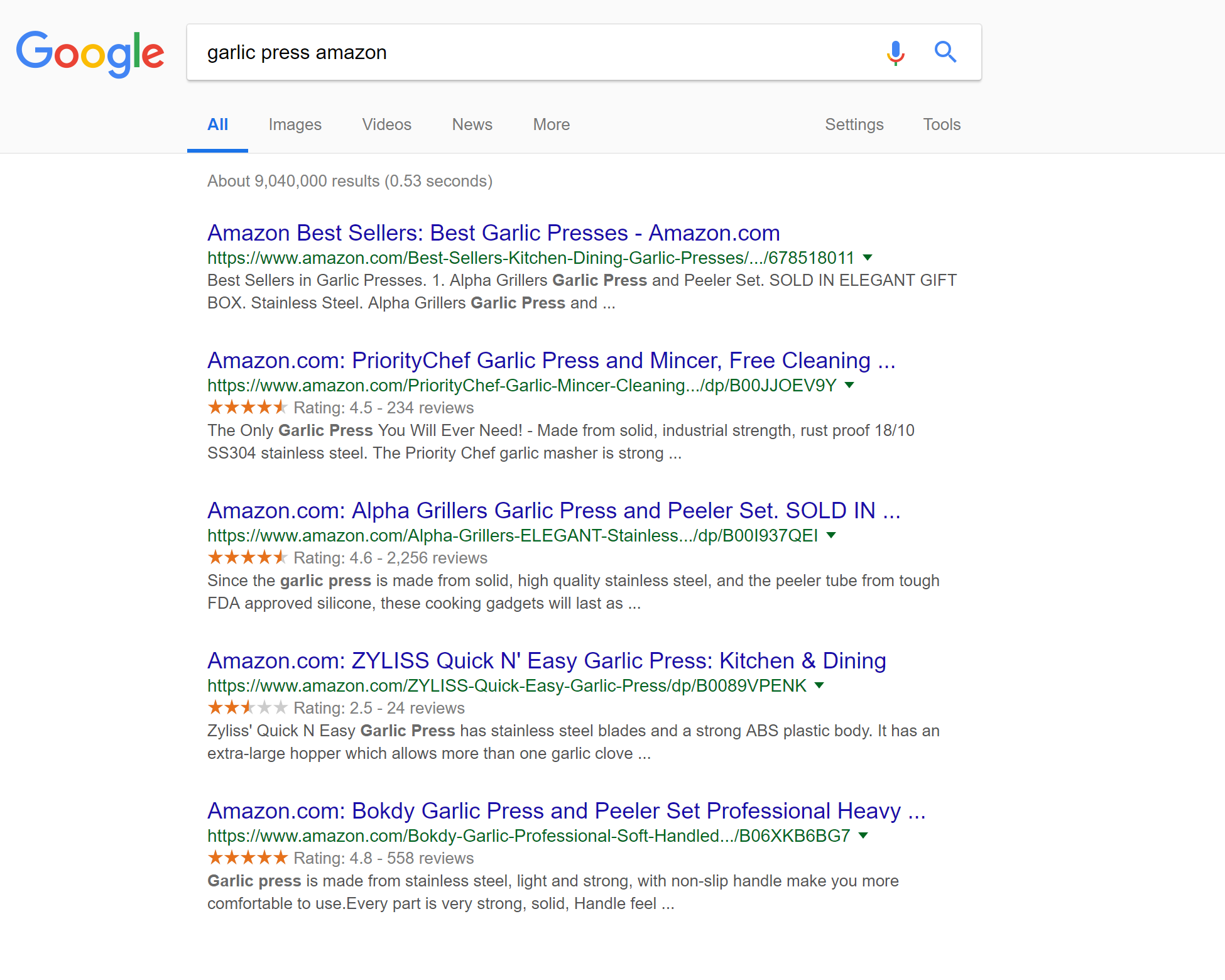Why & How to Conduct Keyword Research for Ecommerce

Do NOT skip this step. Let's learn something new that you can use in your ecommerce business right away.👍
Without effective search engine optimisation (SEO), it is unlikely that your business will ever reach the top results on platforms such as Google. Getting this right is the difference between a good business and a great business.
Talk to many online store owners, and you’ll often find that keyword research is their regular business activity.
This article will show you how to implement effective SEO techniques in your business.
The underlying premise is that SEO helps Google and other search engines (including Amazon and eBay) understand what you are as a business and what you're trying to sell. The better your SEO, the better the chances that these search engines can find your storefront and rank them. The higher your result, the more likely a customer is going to visit your store compared to competitors.
SEO is built on keyword research. The easier it is to describe your business and your products, the simpler it is for customers to find you. Having a wide range of uncomplicated descriptions can dramatically increase the chances of customers discovering your business.
The more traffic you generate will lead to more sales, so effective ecommerce keyword research is worth the investment.
Important terminology you should know
Let’s start with a few essential definitions to help you understand the rest of the article and assist your own research:
Keywords
These are certain words or phrases that describe what your business is about and how this translates on your website. Their purpose is to describe your business or products as accurately as possible. Using relevant words in title pages and throughout the content gives search engines a clearer picture of what your website or store is about. The most effective keywords have a high search rate and are low in competition.
Links
There are two types of links that serve SEO purposes: internal and external. Internal links direct users to a page that is found in your own website, whereas an external link sends users away from your website. The best pages have both internal and external links as it tells a search engine that you hold a position of authority in the field.
Anchor text
This is the part of a sentence that is hyperlinked to another webpage. Having anchor text linked to a keyword is very beneficial when it comes to ranking on search engines as they use it to determine the subject matter of the linked page. Bad anchor text techniques include using the commonly used ‘click here’. This doesn’t provide any relevant information about what you are linking which renders it almost useless to a search engine.
Search Volume
This is the number of searches you store or website gets in a set period of time. It is usually recorded in the number of searches by month. The numbers are based on user queries containing your keywords. This means that the more effective the keywords, the higher the search volume. A high search volume indicates that there is a large interest in that particular market or product.
Search engine results page (SERP)
A SERP is the result of a search query. These are the direct responses to your keywords and how they translate to a search engine. The page may also contain other results such as adverts. There are two types of results: organic and paid. Organic SERPs are natural listings generated by search engines whereas paid SERPs are advertised listings that guarantee a site will appear in the top few results.
Why IS the keyword research important to you
Here is a stat that you probably were not aware of. Of all the people that use Google to search for a particular item, over 90% of them never go past the first page. Of the 90%, over half them don’t even bother with pages under the top three results.

This just shows the real importance of ranking as high as possible on search engines.
For ecommerce, that means writing thorough, compelling product descriptions with beautiful, eye-catching photography and plenty of reviews to help visitors make purchase decisions.
Each time a query is entered into a search engine, there are so many possible results for you to choose from. This number can sometimes even be measured in millions. Getting your page on top of these millions of results requires search engines to find the most relevant keywords and rank them accordingly.
As you can gather, getting your keywords correct and combined with high search volume for those keywords can dramatically increase traffic, conversions and sales. It’s all about getting as close as you can to the top.
So now we know why keyword research is important to businesses and we have a basic understanding of some of the main terms and phrases that are most used when working with SEO. The next step for effective ecommerce keyword research is to go and think about coming up with keywords of your own that best describe your business.
Try and get a few people together and come up with ideas. Maybe go out there and talk to strangers, and ask them to search for your product. After all, you aren’t going to know your customers so it could be a good idea to get people thinking about how they would find your product, store or brand.
A way to get some extra ideas is by using Google. Let’s now discuss how the biggest of all search engines can help you discover some other keywords.
Google is your friend

A quick and easy method to finding other keywords for your business is to just type your existing ones into Google. Just then scroll to the bottom of the page and see what it comes up with. This can prove quite effective but it doesn’t actually show you how much traffic these keywords generate.
Luckily, they have developed a separate tool altogether, specifically designed to generate keywords and show the average monthly searches they each generate.
The tool described above is the Google Keyword Planner.
This is the most popular keyword generator that you can use to generate keywords for your business. As well as displaying the average monthly searches, it also shows how much competition there is in that particular market using that keyword and also related search terms.
The Google Keyword Planner was originally created to be used along Google Adwords to help users discover keywords with high search volumes and low competition to help with their Google Ads campaigns.
The related search terms are important because it's going to expose you to other keywords that are similar but may have a greater number of searches, less competition or a combination of both.
Google Keyword Planner also lets you filter by country. You can select what area you want to specifically target and will show you relevant keyword searches for that particular place. This is great if you plan to sell overseas as you can use the tool to make sure you are ranked high for that territory.
The next advantage of the Google Keyword Planner is that it enables you to discover other niches that are similar to your business niche. This is beneficial as if you are going to be building a store and write content for it, the tool allows you to find other topics to write about.
So overall, be sure to use Google as a tool to discover, collect and identify keywords to use for your ecommerce store.
Make sure the keywords actually work
This is a time now for a bit of self review. You may have come up with a lot of ideas but you really need to think about if they are relevant to you.
The best way to look at it would be: if someone else was running your business and was asking you to search for it using keywords, what would they be? Would they be the same as yours? Are yours too simple or too complicated?
Again, Google is your friend. Search the keywords but pay attention as to what businesses are actually at the top of the results page. Are they the type of competition that would be expecting to see or are they competing in other markets? It’s also worth noting that if your main keywords are competing against other major established brands, it’s going to be a lot more difficult to rank.
Keyword research doesn’t stop here though. Once you’ve identified at least 5 keywords that you want to be ranked on search engines for, it is going to take a bit of time for them to associate them with your business. Over time, your keywords will most likely change due to changes in the market environment or maybe you want your store to head in another direction.
In conclusion
Good ecommerce keyword research means that Google, Yahoo, etc will have a better understanding of what type of business you are trying to brand. Better keywords means more effective search results, which equals larger search volume. Once you’ve nailed this, it’s only a matter of time before you get the noticeable results.

